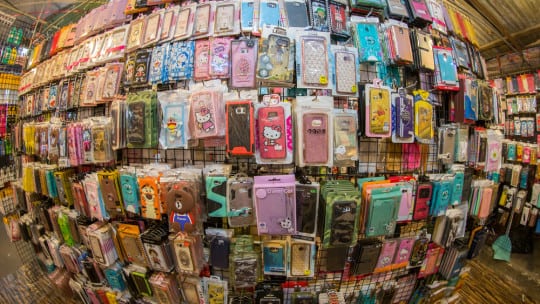
One would hope that a manufacturer of consumer products would understand the importance of communicating directly with the very consumers who purchase its products. Hence why I’ve been disappointed in recent days by what I perceive as a seriously tone-deaf response from MixBin electronics. The maker of “stylish tech accessories” announced a recall this week of nearly 275,000 glitter phone cases after reports (and visual documentation) that liquid was leaking from them, causing severe burns and skin irritation to more than two dozen customers in the U.S. and abroad.
A search two days after the recall has uncovered precisely one mention on MixBin’s Twitter feed, a similar singular mention on its Facebook page (“MixBin and CPSC announce recall….”) and a press release on its website, which includes no quotes from the company, no expressions of sympathy or regret for those injured.
While MixBin deserves credit for a quick response on the recall and for offering full refunds, it had little choice. After all, it’s hard to ignore the defect when consumers are posting images of their severely burned skin and scarring on social media. MixBin appears to be hiding behind regulatory agencies like the Consumer Product Safety Commission (CPSC) and not owning up to what responsibility it has to loyal customers.
Here are some communications steps the brand should have taken by now.
- An apology. It’s critical for a corporate entity to communicate a human side in a crisis such as this. I think we’ve all seen genuine empathy and humility go a long way. Note that an apology isn’t tantamount to an admission of guilt.
- An explanation. One news story noted that MixBin “refused to reveal what the phone case liquid actually is.” That is an inexcusable stance for a business to take if its product is accused of harming customers. If MixBin doesn’t know the cause, it should communicate that it is working with the factory and others along the supply chain to get real answers so this never happens again.
- Be responsive. One post on Twitter might fulfill some regulatory requirements but it doesn’t convey any genuine remorse. MixBin should be engaging with its key audiences on social media; saying they are sorry; that they’re working on getting the issue straightened out; and offering resources for those that may have been burned.
- Be visible. There are certain brands that can manage a crisis with quiet outreach to a small community of corporate customers and other partners. This isn’t one of them. Consider that many of MixBin’s products, such as the recalled phone cases, are targeting young consumers. A strong statement from the top would go a long way toward reassuring concerned parents, for instance. At the very least, MixBin is going to want to make sure those consumers buy a product from it again.
- Empower others. Remember that every stakeholder—employees, contractors and e- commerce sites like Amazon in this case, are conducting their own crisis management over this recall. One of MixBin’s many responsibilities now is to empower these partners with reassuring messages they can utilize in their own, appropriate way. Any business in the middle of such a PR crisis should want its entire network to hear about it from it first…before hearing about it in the media.
T.J. Winick is a VP at Solomon McCown & Company. Follow him at: @tjwinick
